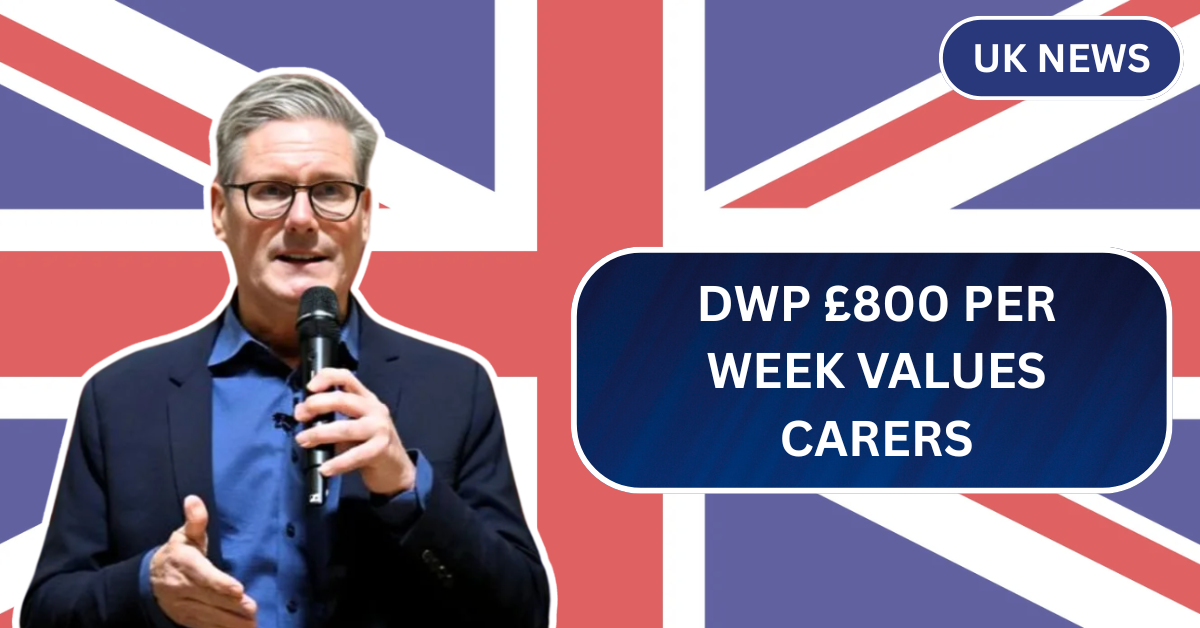Across the UK, thousands of unpaid carers support vulnerable loved ones every day—without proper recognition or financial help. These are the people looking after elderly parents, disabled partners, and children with serious health conditions. Yet many of them receive just £81.90 a week under the current Carer’s Allowance scheme. That’s less than £12 a day for constant care, emotional support, and daily sacrifices.
Now, campaigners and carers are speaking up louder than ever before, urging the government to raise the weekly support to at least £800. The message is clear—it’s time to truly value the efforts of those who hold up the care system.
What Is the Carer’s Allowance Right Now?
The Carer’s Allowance is a benefit provided by the Department for Work and Pensions (DWP) to help people who spend at least 35 hours a week caring for someone with a disability. In 2025, the weekly rate stands at £81.90.
To qualify, carers must meet certain conditions:
- Care for someone who receives a qualifying disability benefit (like PIP or Attendance Allowance)
- Spend 35+ hours a week providing care
- Earn less than £151 a week after tax and expenses (in most cases)
Unfortunately, this amount falls far short of the national minimum wage. If a carer was paid the UK minimum wage for 35 hours, they’d earn at least £460 a week. That makes the current allowance just a fraction of what their time and energy are actually worth.
Why Are People Demanding £800 per Week?
Supporters of the £800 figure say it better reflects the true value of unpaid care work. This number isn’t random—it matches the full-time earnings of many in the workforce, especially when considering the 24/7 nature of caregiving.
Many carers report that they can’t hold down jobs due to the demanding schedule of looking after someone. That means they’re not only working without pay but also losing out on pensions, savings, and long-term financial security.
A recent survey by Carers UK showed that:
- 76% of carers are worried about their finances
- 60% have used their own savings to support care
- Over 40% are in debt or relying on credit cards
With living costs rising, food and energy prices still high, and no extra help in sight, £81.90 per week doesn’t go very far.
Government Support: Too Little, Too Late?
Despite ongoing debates and petitions with tens of thousands of signatures, there’s been no major increase in Carer’s Allowance. While the 2024 Autumn Statement offered some support to low-income households, unpaid carers were largely overlooked once again.
The government argues that there are additional benefits like Universal Credit or Pension Credit that carers may be eligible for. But in reality, navigating the benefits system is complex and time-consuming—especially when you’re already stretched thin providing daily care.
Public Voices Growing Louder
The movement for £800 per week is gaining serious traction online and on the streets. Influencers, social workers, and even some MPs have started pushing for proper recognition of unpaid carers. Hashtags like #RaiseCarersAllowance and #PayCarersFairly are trending across social media platforms.
This growing pressure is starting to shift the conversation. It’s no longer just about money—it’s about dignity, respect, and justice for the people holding up the UK’s care system.
What Happens Next?
The DWP has not committed to any changes yet. However, campaigners are hopeful that the next Budget or General Election manifestos will include better carer support.
For now, charities are urging people to write to their MPs, sign petitions, and raise awareness. Even if the full £800 isn’t introduced immediately, any step toward a higher and fairer allowance would be a major win for the millions who care for others every day.




